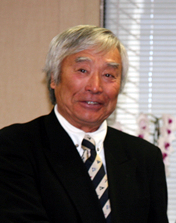A Quote by Stephen Jay Gould
It has become, in my view, a bit too trendy to regard the acceptance of death as something tantamount to intrinsic dignity. Of course I agree with the preacher of Ecclesiastes that there is a time to love and a time to die - and when my skein runs out I hope to face the end calmly and in my own way. For most situations, however, I prefer the more martial view that death is the ultimate enemy - and I find nothing reproachable in those who rage mightily against the dying of the light.
Quote Topics
Related Quotes
So to be sick unto death is, not to be able to die-yet not as though there were hope of life; no, the hopelessness in this case is that even the last hope, death, is not available. When death is the greatest danger, one hopes for life; but when one becomes acquainted with an even more dreadful danger, one hopes for death. So when the danger is so great that death has become one's hope, despair is the disconsolateness of not being able to die.
If we desire to end our days in joy and comfort, let us lay the foundation of a comfortable death now betimes. To die well is not a thing of that light moment as some imagine: it is no easy matter. But to die well is a matter of every day. Let us daily do some good that may help us at the time of our death. Every day by repentance pull out the sting of some sin,that so when death comes, we may have nothing to do but to die. To die well is the action of the whole life.
We tend to suffer from the illusion that we are capable of dying for a belief or theory. What Hagakure is insisting is that even in merciless death, a futile death that knows neither flower nor fruit has dignity as the death of a human being. If we value so highly the dignity of life, how can we not also value the dignity of death? No death may be called futile.
The dignity to be sought in death is the appreciation by others of what one has been in life,... that proceeds from a life well lived and from the acceptance of one's own death as a necessary process of nature.... It is also the recognition that the real event taking place at the end of our life is our death, not the attempts to prevent it.
Every time you have a big blast-out experience you think that's the ultimate-everything, and of course it isn't, although you can get hints. The key however, is not to take those hint experiences to be the ultimate experience. There always needs to be a balance. For example, when you find something, by having some experience, you always want to keep looking because there could be more to it.
Of this I am certain, that no one has ever died who was not destined to die some time. Now the end of life puts the longest life on a par with the shortest... And of what consequence is it what kind of death puts an end to life, since he who has died once is not forced to go through the same ordeal a second time? They, then, who are destined to die, need not be careful to inquire what death they are to die, but into what place death will usher them.
I am the beast with a contorted grin, contracting down to illusion and dilating toward infinity, both growing and dying, delightfully suspended between hope for nothing and despair of everything, brought up among perfumes and poisons, consumed with love and hatred, killed by lights and shadows. My symbol is death of light and the flame of death. Sparks die in me only to be reborn as thunder and lightning. Darkness itself glows in me.
Laughter. Yes, laughter is the Zen attitude towards death and towards life too, because life and death are not separate. Whatsoever is your attitude towards life will be your attitude towards death, because death comes as the ultimate flowering of life. Life exists for death. Life exists through death. Without death there will be no life at all. Death is not the end but the culmination, the crescendo. Death is not the enemy it is the friend. It makes life possible.
When one existentially awakens from within, the relation of birth-and-death is not seen as a sequential change from the former to the latter. Rather, living as it is, is no more than dying, and at the same time there is no living separate from dying. This means that life itself is death and death itself is life. That is, we do not shift sequentially from birth to death, but undergo living-dying in each and every moment.




































